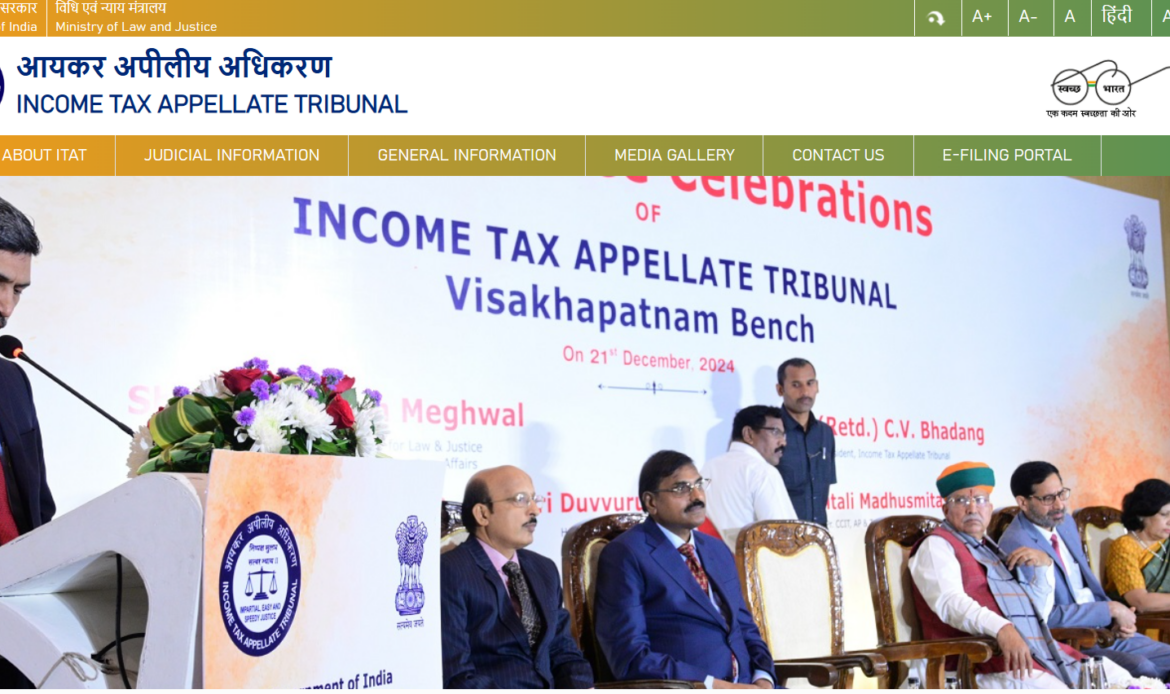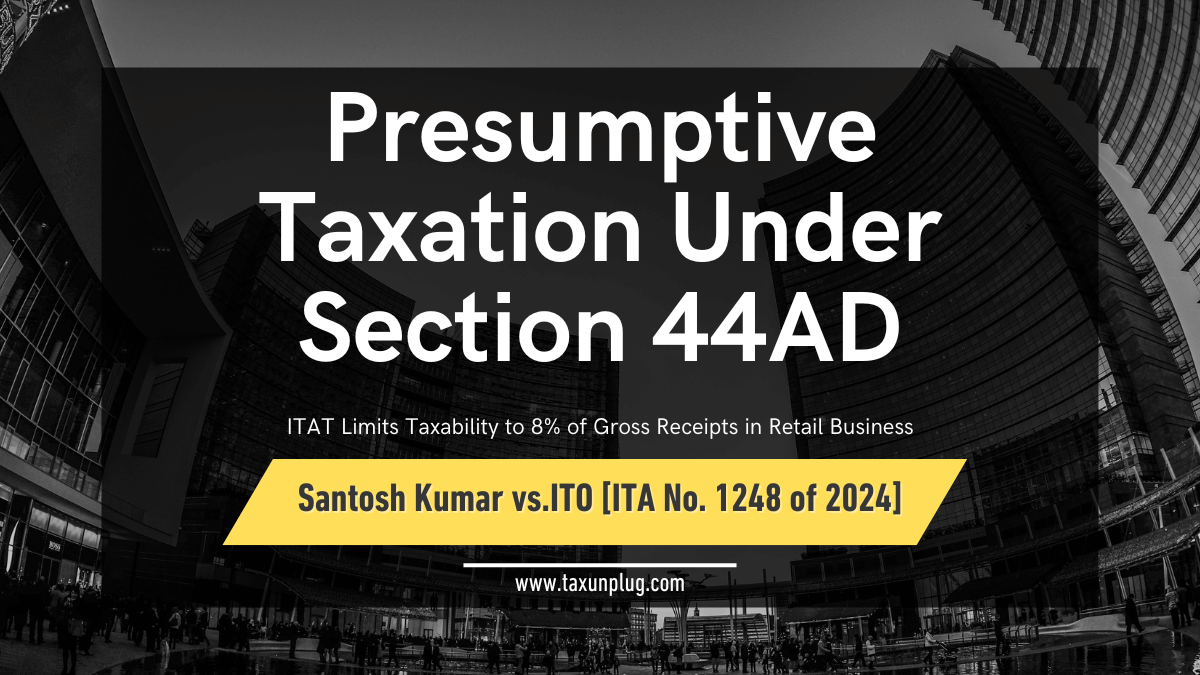ITAT Limits Taxability to 8% of Gross Receipts:
Santosh Kumar vs.ITO [ITA No. 1248 of 2024]
Background of the Case
The appellant, Mr. Santosh Kumar, engaged in the trading of Kota Stones, was subjected to reassessment proceedings after depositing cash of Rs. 25,56,700 in his bank account on different dates. The ITD issued a notice under Section 148 of the Income Tax Act, 1961, for non-filing of the return for A.Y. 2011-12. Due to non-compliance, the Assessing Officer treated the entire cash deposit as income from undisclosed sources under Section 144 of the Act.
The appellant’s appeal before the CIT(A) was dismissed on the grounds that additional evidence under Rule 46A of the Income Tax Rules, 1962, was inadmissible. Aggrieved by this decision, the assessee filed an appeal before the Income Tax Appellate Tribunal (ITAT), Jaipur Bench.
Arguments by the Appellant
The appellant argued that the CIT(A) failed to consider additional evidence, including VAT registration and transaction records, which substantiated the business nature of deposits. The appellant further stated that the deposits were business receipts from trading in Kota Stones, where buyers deposited cash directly into the bank account. In the preceding A.Y. 2010-11, the Revenue had accepted a lower income despite similar cash deposits, making the current assessment inconsistent.
The appellant contended that the peak credit theory or presumptive taxation under Section 44AD should be applied instead of taxing the entire deposits.
Respondent’s Response
The respondent stated that the appellant failed to file a return even after receiving a notice under Section 148, showing a deliberate attempt to evade tax. Also no documentary evidence was furnished before the AO to justify the cash deposits, and non-compliance led to an ex-parte assessment. The CIT(A) correctly upheld the addition as the appellant intentionally avoided participation in assessment proceedings.
Court Findings and Decision
The ITAT bench of Jaipur noted that the appellant behavior before the AO was non-compliant, but the CIT(A) had the power under Section 251 to admit additional evidence for a fair assessment. The assessee’s business activity in Kota Stone trading was recognized by the VAT Department and accepted in prior assessment years. Taxing the entire cash deposit as income was unjustified; instead, applying Section 44AD was more appropriate. The tribunal restricted the addition to Rs. 2,05,000, approximately 8% of the total deposits, and deleted the addition of Rs. 25,56,700 made by the AO and upheld by the CIT(A).
ITAT Limits Taxability to 8% of Gross Receipts

To download official order, Click Here
“The site is for information purposes only and does not provide legal advice of any sort. Viewing this site, receipt of information contained on this site, or the transmission of information from or to this site does not constitute an attorney-client relationship. The information on this site is not intended to be a substitute for professional advice.”

